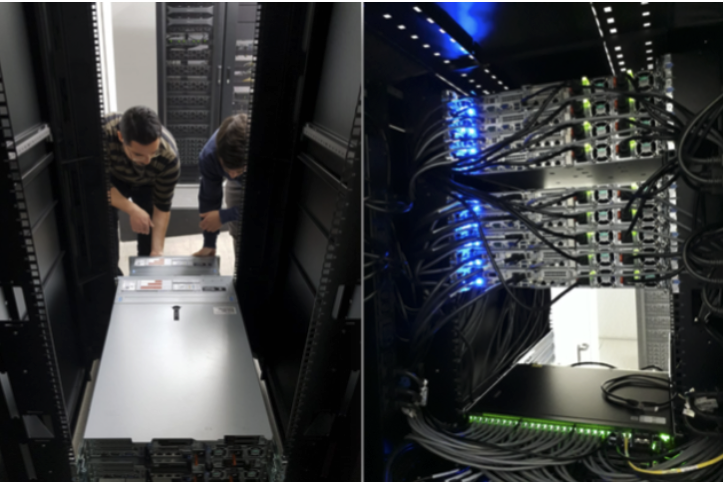The Spanish SKA Regional Centre (espSRC)
Through the Instituto de Astrofísica de Andalucía (IAA-CSIC), Spain was among the first countries to start developing a national SRC prototype, the espSRC, in 2018. The infrastructure has already supported over 90 projects since 2021, including 36 focused on scientific research. Its flexible cloud-based infrastructure currently offers features (e.g. virtual machines, disk storage, software, user support,…) empowering researchers’ projects across disciplines that range from radio data processing to multifrequency studies, some of which will be foundational for the future SKA Key Science Projects.
The work developed by the Spanish team has led the espSRC to be the first node meeting the requirements of the SRCNet 0.1, the first operational version of the SRCNet. This early commitment positioned Spain as a reference for other countries. The Coral team – one of the SRCNet international teams led by Spain – with the support of the Canadian SRC team, developed the so called Mini-SRCNet, a scaled-down version of the SRCNet platform for testing in which real data from SKAO precursor telescopes was distributed to evaluate the system performance. This demonstrator was deployed in four international nodes and provided very valuable feedback on the internal interfaces of the SRCNet.
The espSRC team co-organised several training initiatives such as the first IAA-CSIC Severo Ochoa SKA Open Science School and the 10th European Radio Interferometry School among others. It also reached an agreement for both the espSRC and the Galician Supercomputing Centre (CESGA) to participate in the SKA Data Challenges developed during 2024 and 2025, through which both infrastructures provided computing resources and technical support for participating international teams.
The national initiative is deeply aligned with Open Science values as well, actively organising training and supporting reproducible research practices. The espSRC is also laying the groundwork for sustainable innovation through the TED4SKA project. While still in progress, TED4SKA explores the integration of green computing practices into the SRC operations, addressing energy efficiency and environmental impact. This initiative could have far-reaching implications for national and European research infrastructure policy, especially as computing demands continue to grow.
In sum, Spain’s involvement in the SRCNet and the espSRC exemplifies a comprehensive impact across science, technology and society, contributing to the future of data-intensive astronomy.





